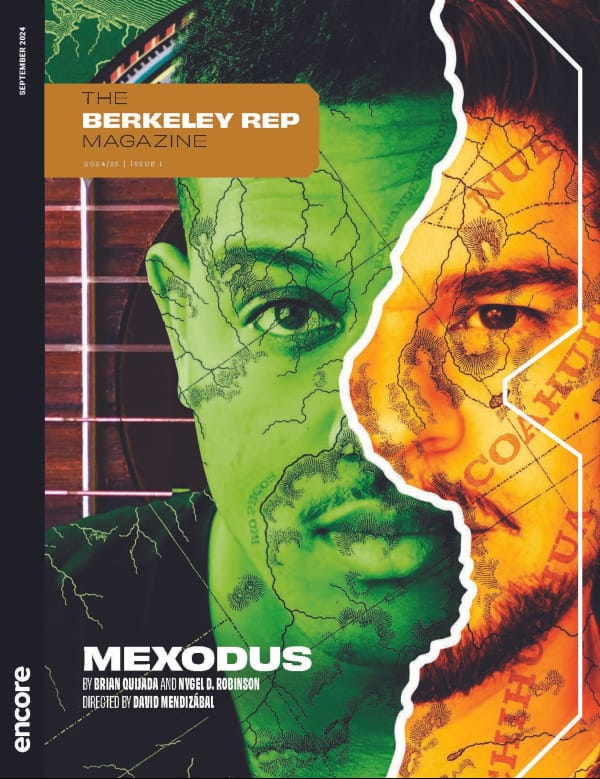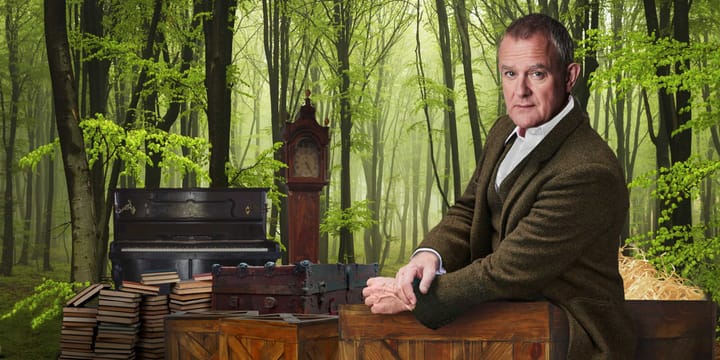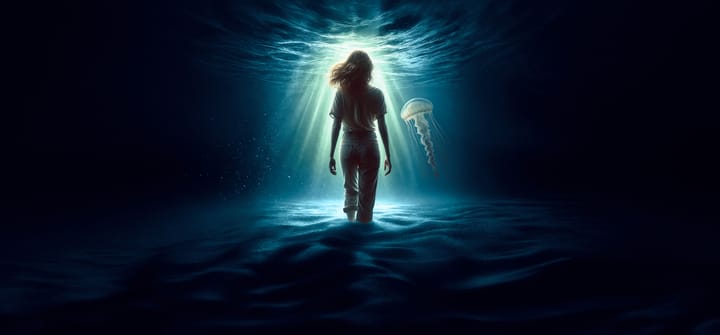September 13 – October 20, 2024 | Peet's Theatre
In This Program
- A Welcome from the Artistic and Managing Directors
- “Did you know this ish? We didn’t know this ish.”
- Singing in Solidarity: David Mendizábal talks with Brian Quijada and Nygel D. Robinson
- A Mexodus Mini-Glossary
- The Remarkable Legacy of Sheila Wishek
- Show Program
- Making Theatre
- Print Edition
- More about Berkeley Rep
Welcome to Berkeley Rep
To ensure the best experience for everyone:
While always encouraged, masks are required inside the theatres during Sunday and Tuesday performances for the first three weeks of a show’s run.
Food and drink: Beverages in cans, cartons, or plastic cups with lids are welcome in the theatre during unmasked performances. Food is prohibited in the theatre during all performances.
Courtesy reminder: To avoid disruption to everyone, please turn off your cell phones, beeping watches, and electronic devices, and refrain from unwrapping cellophane wrappers during the performance. For the comfort of all patrons, please avoid wearing strongly scented personal products.
Photos: Photos may be taken in the theatre before and after the performance and during intermission. Photos and videos during the performance are strictly prohibited. Photos posted on social media must credit Berkeley Rep and the show’s designers.
Smoking and vaping: Berkeley Rep’s public spaces are smoke- and vape-free.
One of the joys of live theatre is the collective experience. Audience members respond to the show in many different ways. We invite you to join together and enjoy the show! If there is anything we can do to make your experience more enjoyable, please see a member of the house staff.
Get closed captioning on your smartphone! Closed Captioning is available for the following evening performances: September 19, 20, 22, 24, 25, and every matinee through October 17. Use your smartphone to scan this QR code:
Then, switch your WiFi to the network CCTheaterPeets. Password: cctheater1 When the CC page appears, choose English captions. If you’d like assistance, please see an usher or house manager.
Captions powered by CCTheater, from AccessTech, LLC.(info@getaccesstech.com)

From the Artistic Director
Welcome to the 2024/25 Season!
One of the great privileges of my job is the chance to introduce you to artists with whom I think you can fall in love, who will become part of that pantheon of writers, directors, designers, and performers who help shape the way you think about the possibilities of what theatre can be in this moment, and what it can mean to you personally. And I think you are really going to enjoy getting to know Brian Quijada and Nygel D. Robinson! These two extraordinarily talented storytellers bring a breadth of skills to this seldom-told piece of our shared history — they are wordsmiths, composers, multi-instrumental musicians, singers, and actors. It has been such a pleasure to watch Mexodus develop over the last couple of years from a pandemic-initiated reach through virtual space to a fully embodied theatrical event, in collaboration with director David Mendizábal.
Over the last several years, I have often asked myself the question, “What does this audience, this community, want and need from their theatre-going at the moment? What do they need from us as a company?” And, of course, the more tumultuous the world feels at a given moment, the harder it is to answer that question. We know that immigration is one of the most significant issues facing our country in this election. One of the real pleasures of Mexodus is the way Brian and Nygel not only illuminate an aspect of our history in such a beautifully theatrical way, but also invite us to think deeply in this moment about the forces that have shaped our country, and the possibilities for our shared future if we can come together and see each other clearly.
Warmly,
Johanna Pfaelzer
Artistic Director
From the Managing Director
As a theatre that produces what’s new, next, and fresh, we welcome you to the electrifying hip-hop, live-looping musical Mexodus and the beginning of your 2024/25 season at Berkeley Rep! We are excited to kick off this season of illuminating stories and joyful discoveries. Later this fall, you’ll enjoy the triumphant return of Mary Zimmerman with her new musical adaptation, The Matchbox Magic Flute, and the direct-from-Broadway Jaja’s African Hair Braiding. Simultaneously, if you find yourself in New York City this fall, for the first time ever, you can see two shows that originated at Berkeley Rep running on Broadway — Swept Away and Cult of Love.
This season is more accessible than ever. With the new Theatre Explorer Series, our School of Theatre is offering age-appropriate educational workshops concurrent with select performances so parents can enjoy some grownup time at the theatre. We have also added additional closed-captioned performances and launched an audio described series that provides live narration of the visual elements of the show.
If you are not yet a subscriber to Berkeley Rep, I encourage you to join us to get the best deals, the best perks, and guarantee yourself a year of stellar storytelling featuring some of the best artists from the Bay, Broadway, and beyond. Subscribing is easy, flexible, and affordable — and the most popular way to experience all that Berkeley Rep has to offer.
This is an exciting time to be a part of Berkeley Rep, and we’re so glad you are here.
Enjoy the show!
Tom Parrish
Managing Director
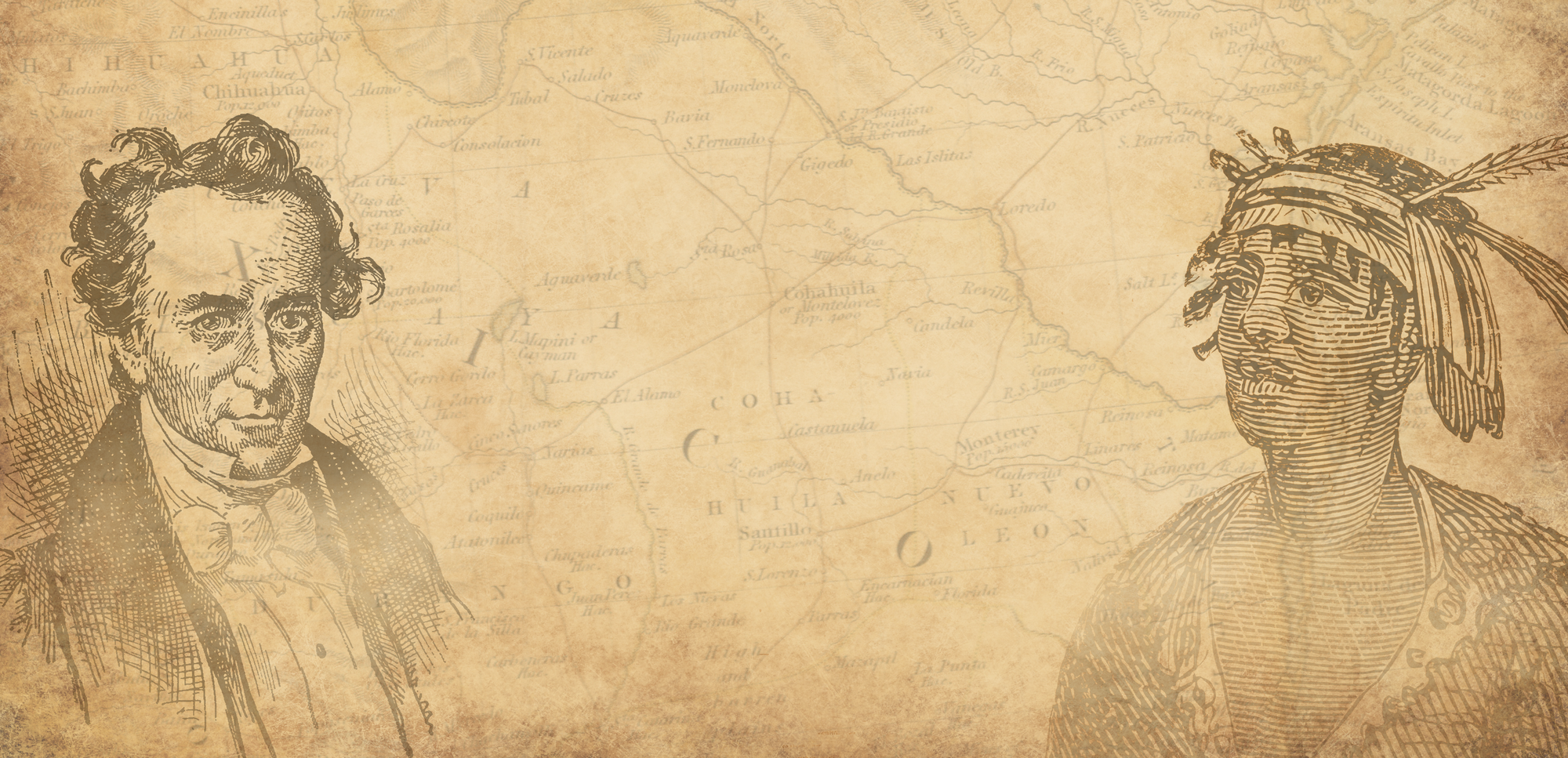
“Did You Know This Ish? We Didn’t Know This Ish.”
by Tlaloc Rivas
It is important to pause and reflect on what happened at the Coahuila-Texas borderlands in the period between Mexican Independence from Spain in 1821 and the establishment of the Republic of Texas in 1836. Although Coahuila y Tejas developed as a single region, colonization would eventually lead to its separation, not only in terms of administration and territory but also in terms of racial regimes.
U.S. nationals entered Mexico because of the Colonization Laws of 1821 (issued by Spain and ratified by Independent Mexico), which allowed the entry of immigrants if they converted to Catholicism. Under these laws, Moses Austin negotiated the establishment of a colony, and when he died, his son, Stephen Austin, obtained a license to take 300 families to Tejas in 1825 and later became the founder of the Republic of Texas. Appealing to U.S. owners of the enslaved while trying not to alienate abolitionist Mexico, Coahuila y Tejas passed a decree of lifetime indentured servitude (later reduced to 10 years) to mask the persistence of slavery.
The choice to flee to Mexico rather than Canada was a practical one due to distance, but it was no less dangerous. Texans loyal to the Republic ranged from indifferent to outright hostile to Blacks attempting to cross the Rio Grande. Enslavers employed posses to capture those who were attempting to escape. Often without footwear, escapees had to traverse across rugged and scalding terrain. Flash flooding and mudslides were common. Predatorial animals such as wolves and mountain lions, as well as poisonous rattlesnakes and scorpions, could fell unprotected runaways. And of course, the final threat: crossing the Rio Grande, a picturesque river with deceptively powerful currents fed by the snowpacks of the Rocky Mountains.
“Texas must be a slave country.”
— Stephen F. Austin, Empresario, 1831
While there was no guarantee making a life in Mexico would be any better, it did not deter thousands of Black and African American people to seek their freedom. Many of them did have assistance from sympathetic ‘Texicans’, Native Americans, and of course, the Mascogos on the other side of the Rio Grande providing sustenance and shelter to those arriving to their settlements in the region.
Los Mascogos
In the town of Nacimiento de los Negros, located in the Coahuila region of Mexico, reside the descendants of the Mascogos, a group consisting of formerly enslaved African Americans who escaped the Southern United States and found refuge among the Seminole Native Americans in Florida during the early 19th century.
The Mascogos' history is deeply intertwined with broader narratives of resistance, migration, and the quest for freedom. Following the Second Seminole War (1835-42) in Florida, the U.S. government relocated Seminoles and Black Seminoles to Indian Territory (present-day Oklahoma). Upon arrival, they remained vulnerable to kidnapping and re-enslavement. Dissatisfied with these persistent threats, some of the Black Seminoles sought and secured asylum in Mexico in 1850, where slavery had been abolished since 1829.
Much of this history is not as well-documented as those narratives of formerly enslaved people fleeing to the Northern U.S. and Canada, but it is no less worthy of our re-examination and remembrance. It exists in testimonials from the descendants of Mascogos. Letters and official documents are sparse, but provide a framework from which we can imagine and understand.
June 19, 1865 marks the day when the last enslaved people in Texas learned of their freedom. This celebration, known as Juneteenth, is a testament
to their enduring connection to their African American descendants and their history of resistance against enslavement.
Despite their rich cultural heritage, the Mascogos today face challenges related to identity, land rights, and economic development. They are a small, often overlooked community within Mexico, struggling to preserve their unique heritage in a rapidly changing world.
“Black Seminole leader John Horse staged a mass escape in 1849 to northern Mexico… I don’t know about you, but I wasn’t taught this in school.”
— Mando Rayo, Journalist, 2023
However, in recent years, there has been a growing interest in the history and culture of the Mascogos, leading to academic studies and increased media attention. This interest not only highlights the Mascogos' unique place in the African diaspora but also emphasizes the interconnected histories of the U.S., Mexico, and the Indigenous nations on both sides of the Rio Grande. The story of the Mascogos and other Black Mexicans who were able to reach freedom is a compelling example of resilience, adaptation, and the complex interplay of cultural identities in the Americas.
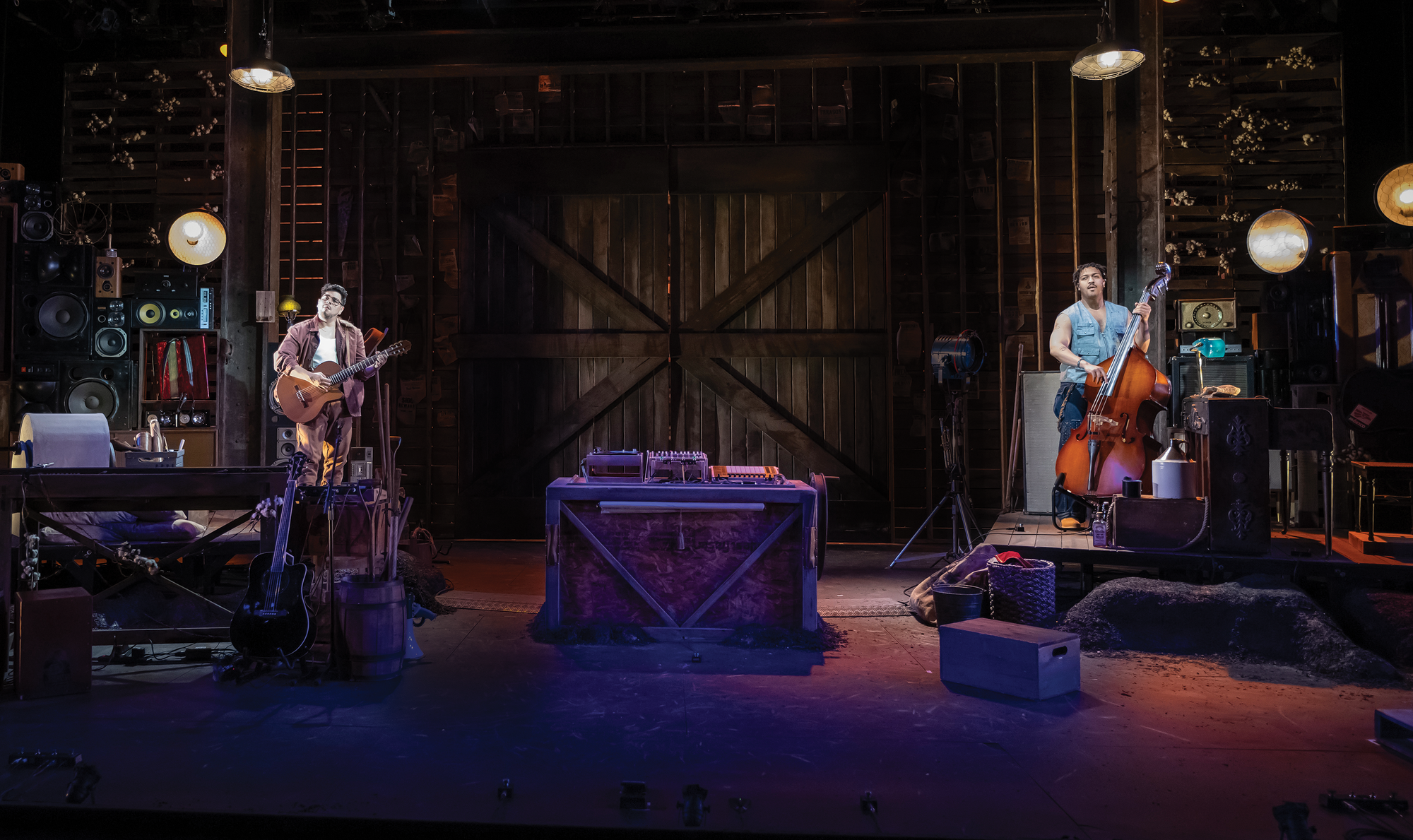
Singing in Solidarity
David Mendizábal talks with Brian Quijada and Nygel D. Robinson
Brian Quijada and Nygel D. Robinson first met in February 2020, and soon after, the world shut down. Over the following year, with the backdrop of a global pandemic and racial reckoning, Brian and Nygel dedicated themselves to researching and co-writing Mexodus. Since then, Brian and Nygel have brought the show to life in Baltimore, MD, Washington, DC, and now here, at Berkeley Rep. Mexodus Director, Costume Designer, and Berkeley Rep Associate Artistic Director David Mendizábal sat down with Brian and Nygel to ask them about their creative process, their influences, and their hopes for this radical, live-looping, hip-hop musical.
David Mendizábal: How has y'all's relationship evolved since first meeting, both as friends and as collaborators?
Nygel D. Robinson: Our lives have been weirdly paralleling the play. We started out pretty much as perfect strangers who had an idea and trusted each other enough to work on it, but you never know. So, we learned things along the way. I learned who Brian was, and Brian learned who I am. We know what works for each other, what doesn't work. We know how to coexist. We've learned how to collaborate much like the two men in the play must learn how to give and take with each other. Now, Brian is one of my closest friends.
Brian Quijada: I think when we came together, we saw that we had strengths and we had weaknesses. We both brought the things that we thought we knew how to do well to the table, and were like, cool, I can't do that, so can you help me figure it out? I'm excited to keep learning from Nygel because I feel like he makes me better.
NR: And vice versa. We challenge each other and are becoming more well-rounded as creatives, I think, because of each other.
DM: You've decided to tell this story about a Black man and a brown man who come together in solidarity to help each other find their own version of liberation. In this moment where our country feels especially divided, I’m curious what it means for you two to be artists intentionally telling stories, and what this story means to you now.
NR: Brian and I are not going to the Army. We're not going to the Navy. We're not going to the military. We're not going to pick up a gun and fight for anything like that. But what we can do is pick up a pen, pick up a guitar, and use our voices and use our minds to try to make things a little better. This piece is especially important this Fall because we're about to run into a lot of misinformation and a lot of division and a lot of things that pit Black people against brown people. So why not show us that if we get together, we can overcome these obstacles that whiteness is throwing in our faces?
BQ: Yeah, I feel like ever since I started writing — this year marks 10 years since I started — it always feels dire. I mean, it feels extra dire in this election cycle, but it always feels bad. Immigration politics is always on the ballot, and it's one of the things that I'm most passionate about because of my immigrant parents. So, it always feels important to share to a wide audience, to try to have compassion towards the American brown immigrant. I think where this piece differs for me is that it combines my passions with a more national and — let's be honest — global issue of anti-Blackness. It allows me to both fight for the things that I've been fighting for in my writing for the past 10 years and unite with Nygel in creating work for a more compassionate country that is trying to abolish white supremacy.
DM: We throw the word “solidarity” around so much, but what does it actually mean to you?
BQ: Maybe this is super corny, but I think of the Martin Luther King Jr. quote about looking beyond what anybody looks like, their color of skin, disability, gender, and being like, who is this person? What is their heart? Can I connect with this person heart to heart beyond their physical appearance? I think that's solidarity for me.
NR: It's a willingness to feel discomfort for the sake of someone else. I think about the solidarity movements we're seeing right now with Palestinians, and it’s like, what does it cost you to stand up for this group of people? And if you're not willing to face the consequences of standing for this group of people, are you in solidarity with anyone other than yourself?
BQ: That's a better answer than mine.
DM: I love that idea of solidarity being a willingness to sit in discomfort if it means supporting the liberation of others because it's not actually harming you. Discomfort is not harmful if you're not placing yourself in harm’s way. One of the things that found its way into the show was the radical welcoming at the top. I'm curious why that feels important to you.
NR: I mean, no one else is radically welcoming you into a theatre. Churches might radically welcome you, but only if you're a Christian, only if you believe in what I believe in. But with this we're like, no, no, no. Bring yourself. Come experience this thing and don’t worry about what etiquette tells you to do. When you feel comfortable enough to be your full self, you're able to receive and hopefully walk out changed.
BQ: Yeah. I also think that the American theatre was made into a capitalist venture by and for white folk. And it's beginning to shift a little bit where it feels like we're on the brink of people like my parents coming to the theatre who would have never come before because they never felt invited, or that they could be themselves. Oftentimes they'll be like, oh, I don't know the etiquette of the place because it's not part of the culture. They've never felt welcomed in that way. And so, I think when we say “¡Bienvenidos!,” we're saying, we see you, and we're happy you're here. We’re saying whoever you are and wherever you came from; if this is your first play ever, you're welcome here.
DM: Let's talk about the musical influences in Mexodus. It's a hip-hop musical. And I know that you are both hip-hop heads, but you are also drawing from other styles including Mexican boleros and African American spirituals. How do these sounds come together to make Mexodus and why hip-hop?
NR: I mean, I hate to quote [Lin Manuel-Miranda], but “hip-hop is the language of revolution.” Hip-hop was created by Black and brown people, and that history mirrors our story of Black and brown solidarity.
BQ: Yeah. I mean, it has to be hip-hop. It's such an effective form of relaying intense emotion, intense frustration, and getting out a bunch of exposition and doing it in a fun, cool way. In terms of the other music, I grew up listening to Los Panchos and Los Dandys and a bunch of Vicente Fernández and Selena, in the same way that we both grew up with hip hop and R&B, like Erykah Badu and —
NR: Stevie Wonder and Donny Hathaway and Luther Vandross and Earth, Wind, and Fire...
BQ: It's less of an intentionality of us being like, oh, what if this sounded like this? It's just the music that we grew up with and exists in the very way that we hear music. Live looping is the future of the American theatre!
NR: There you go. Hell yeah!
DM: And why?
BQ: Because it must be seen live. If we want people to choose the theatre over Netflix, we must do something that can only be seen live and experienced live. There's something about the magic of seeing and experiencing this show live.
DM: Yeah, absolutely. Absolutely.

A Mexodus Mini-Glossary
Mexodus is a bilingual musical written and sung in both English and Spanish. To support the tension between two men from different worlds trying to communicate with limited understanding, translations are not used in the production.
Below are a few key words and phrases to help non-Spanish speakers follow along.
As the playwrights note in the script, “It’s ok if you don’t understand every Spanish word, you’ll still get it.”
A Dios: To God
Adiós: Goodbye
Agua: Water
Amigos: Friends
Apestas: You Stink
Ayudar: To Help
Buscar: To Look For
Chismosa Gente: Gossipy People
Demonios: Demons
Dinero: Money
El Alcalde: The Mayor
El Commandante: The Commander
Esclavo: Slave
Familia: Family
Gringos: White Folks
Gritos: Screams
Guerra: War
Herido: Hurt
La Frontera: The Border
La Tierra: The Land
Libre: Free
Metelón: Meddler
Mi Casa: My House
Mi Nombre Es: My Name Is
Órale: Let's Go (Mexican Slang)
Pinche: Fucking (Mexican Slang)
Proteger: Protect
Pueblo: Town
Que Dios Tenga Piedad de los Orgullosos: May God Have Mercy On The Proud.
Qué Estás Haciendo: What Are You Doing?
Sobrevivir: To Survive
Tengo Derecho A Mi Libertad: I Have A Right To My Freedom
Trabajo: Work
Tranquilo: Calm down
Un Poco: A Little
Vete A La Verga: Go To Hell
Vida: Life
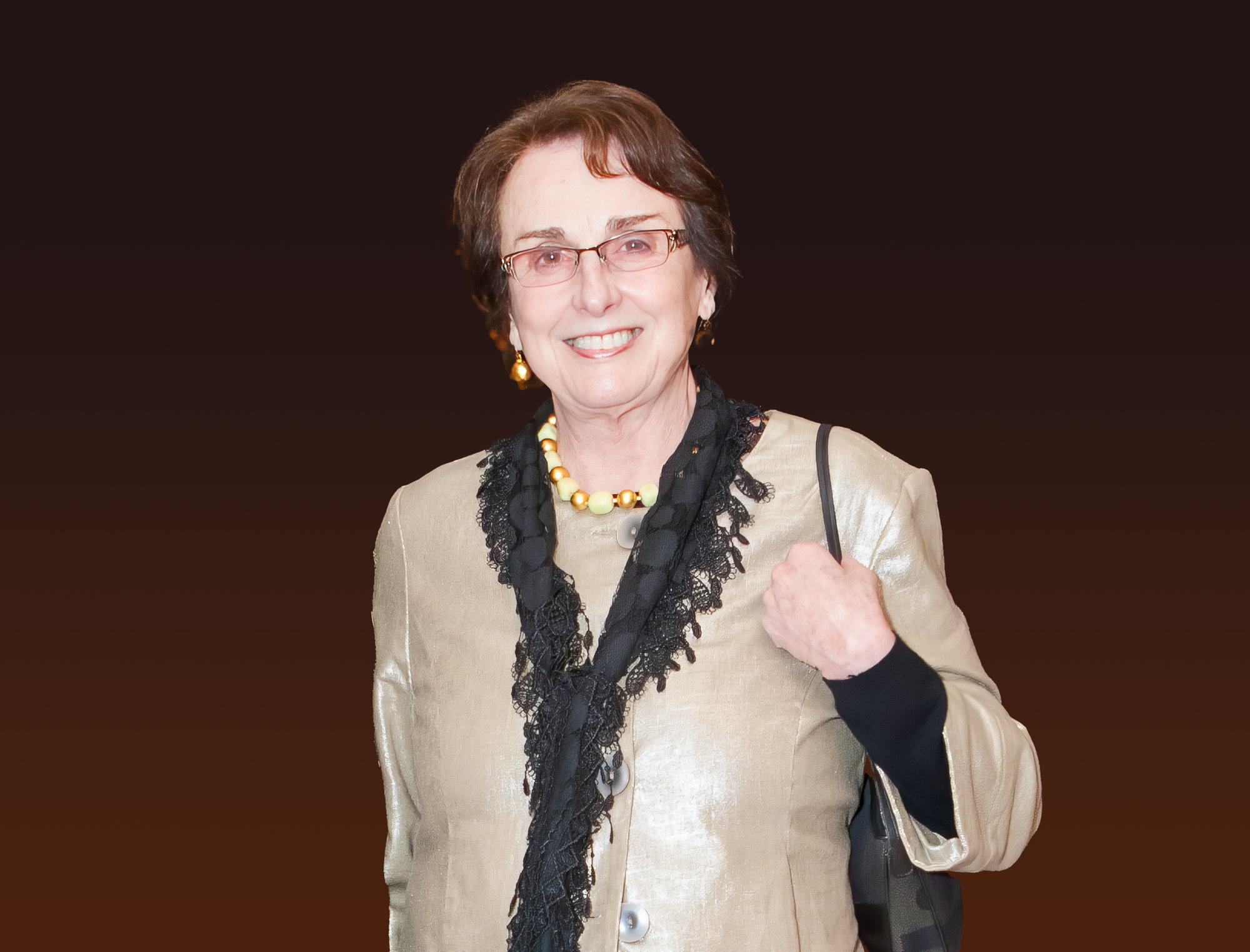
The Remarkable Legacy of Sheila Wishek
Berkeley Repertory Theatre wishes to pay special tribute to longtime patron Sheila Wishek, who passed away earlier this year. Sheila began attending Berkeley Rep productions in the early '80s. In addition to being a loyal subscriber and supporter, Sheila chose to include Berkeley Rep in her estate plans.
Hers is one of the largest bequests ever received, and it helps ensure that Berkeley Rep will always be at the forefront of American theatre, telling unforgettable stories for generations to come.
Please consider joining Sheila and over 100 other patrons by becoming a Michael Leibert Legacy Society member. Legacy gifts of any size are most welcome and greatly appreciated.
Johanna Pfaelzer, Artistic Director | Tom Parrish, Managing Director
In Association with Baltimore Center Stage and Mosaic Theater Company of DC
presents
Mexodus
By and Featuring
Brian Quijada* and Nygel D. Robinson*
Directed by
David Mendizábal
Scenic Design
Riw Rakkulchon
Costume Design
David Mendizábal
Lighting Design
Mextly Couzin
Sound Design
Mikhail Fiksel
Projection Design
Rasean Davonté Johnson
Orchestrations
Mikhail Fiksel
Brian Quijada
Nygel D. Robinson
Movement Director
Tony Thomas
Stage Manager
Hope Villanueva*
Assistant Stage Manager
Christina Hogan*
(Through October 6)
Julia Formanek*
(October 7–20)
Director of Marketing and Audience Development
Voleine Amilcar
General Manager
Sara Danielsen
Finance Director
Jared Hammond
Director of Production
Audrey Hoo
Director of the School of Theatre
Anthony Jackson
Director of Development
Ari Lipsky
Associate Artistic Director
David Mendizábal
Director of Human Resources and Diversity
Modesta Tamayo
Director of Operations
Amanda Williams O’Steen
SEASON SPONSORS
Stephen & Susan Chamberlin
Yogen & Peggy Dalal
Bruce Golden & Michelle Mercer
Frances Hellman & Warren Breslau
Wayne Jordan & Quinn Delaney
Jonathan Logan & John Piane
Gisele & Kenneth F. Miller
Jack & Betty Schafer
The Strauch Kulhanjian Family
Kelli & Steffan Tomlinson
Gail & Arne Wagner

SPONSOR

CAST
(in alphabetical order)
Brian Quijada*
Carlos
Nygel D. Robinson*
Henry
UNDERSTUDIES
(in alphabetical order)
Trent Lawson
Henry
Alan Mendez*
Carlos
Understudies never substitute for listed performers unless a specific announcement or notice is made at the time of appearance.
This theatre operates under agreement with the League of Resident Theaters, Actors’ Equity Association (the union of professional actors and stage managers in the United States), the Stage Directors and Choreographers Society, and United Scenic Artists.
The videotaping or making of electronic or other audio and/or visual recordings of this production and distributing recordings or streams in any medium, including the internet, is strictly prohibited, a violation of the author(s)’s rights, and actionable under United States copyright law.
For This Production
Assistant Director
Manon McCollum (Bret C. Harte Artistic Fellow)
Associate Scenic Designer
Laura Valenti
Assistant Costume Designer
Cody Von Ruden
Assistant Lighting Designer
Renata Taylor-Smith (Lighting Fellow)
Sound Consultant
Simon Briggs
Assistant Sound Designer
Kaileykielle Hoga (Harry Weininger Sound Fellow)
Associate Projection Designer
Andres Fiz
Assistant Projection Designer
Michael Commendatore
Original Dramaturg
Tlaloc Rivas
Production Assistant
Trinity Wicklund (Stage Management Fellow)
Deck Crew & Automation Operator
Isaac Jacobs
Wardrobe
Caz Hiro (Interim Wardrobe Supervisor), Dieyla Diop
Lighting Programmer/Production Electrician
Desiree Alcocer
Sound & Video Show Crew
Angela Don (A1), Courtney Jean (A2)
Scenic Fabrication by Berkeley Repertory Theatre Scenic & Paint Shops
Additional Scenery Fabricators
Carl Martin, Maggie Wentworth, Isaac Jacobs, Cameron Edwards, Tyler Smith, Cassidy Carlson (Scenic Construction Fellow)
Additional Scenic Artists
Kenzie Bradley, E Wayman, Caitlyn Brown (Scenic Art Fellow)
Props Fabrication by Berkeley Repertory Theatre Properties Shop
Additional Props Artisans
Sofie Miller, Siobhán Slater, Brittany Watkins
Costumes Built by Berkeley Repertory Theatre Costume Shop
Additional Costume Technicians
Chris Weiland, Breanna Bayba, Amanda Geyer (Costumes Fellow)
Additional Costumes Built by David Samuel Menkes Custom Leather
Costumes special thanks to Darrin George/DGeorge Designs, Jeffrey Wallach, Francisco Rojas
Lighting Services provided by Berkeley Repertory Theatre Lighting Department
Additional Lighting Technicians
Amy Abad, Angelina Costa, Ash Brown, Ben Visini, Brittany Cobb, Cal Swan-Streepy, Charlie Mejia, A.Chris Hartzell, Dieyla Diop, Frankie Aranguren, Lauren Chang, Jack Grable, Jacob Hill, Jason Joo, Hannah Linaweaver, Margaret Linn, Matthew Sykes, Nori Hayden Quist, Riley Richardson, Shy Baniani, Taylor Rivers, Zoya Nanale
Sound & Video Services provided by Berkeley Repertory Theatre Sound and Video Department
Additional Sound & Video Technicians
Courtney Jean, Camille Rassweiler, Olivia Vazquez
Production Manager
Kali Grau
Assistant Production Manager
Rhea Mehta (Production Management Fellow)
Company Manager
Peter Orkiszewski
Assistant Company Manager
Katie Anthony (Company Management Fellow)
Associate Casting Director
Karina Fox
Additional Casting
Alaine Alldaffer, CSA and Lisa Donadio Alldaffer
Medical Consultation for Berkeley Rep provided by Agi E. Ban DC, John Carrigg MD, Cindy J. Chang MD, Christina Corey MD, Neil Claveria PT, Patricia I. Commer DPT, Kathy Fang MD PhD, Steven Fugaro MD, Olivia Lang MD, Allen Ling PT, Liz Nguyen DPT, Christina S. Wilmer OD, and Katherine C. Yung MD
Artist Bios
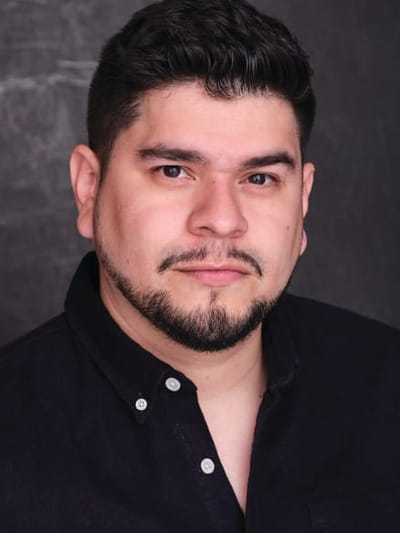
Brian Quijada* he/him
Carlos and Co-Creator
Brian is an Emmy-nominated playwright, actor, composer, and Artistic Director of The Wild Wind Performance Lab for New Play Development. Brian has spent most of his career acting in Off-Broadway and regional theatres including: The Public Theater, Roundabout Theatre Company, Playwrights Realm, Ensemble Studio Theatre, and Actors Theatre of Louisville. As a playwright/composer, his work spans theatre to audio plays to television. His hip-hop solo show Where Did We Sit on the Bus? has been produced across the country, including at Teatro Vista, Ensemble Studio Theatre, City Theatre Pittsburgh, Actors Theatre of Louisville, Geva Theatre, and more. His other works include Kid Prince and Pablo and Somewhere Over the Border. He is a four-time Jeff Award winner, three-time Drama Desk nominee, and one-time Lucille Lortel winner. Visit brianquijada.com and @mrbrianquijada on Instagram for more.
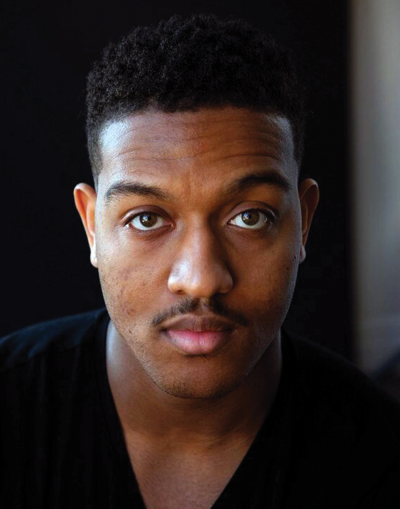
Nygel D. Robinson* he/him
Henry and Co-Creator
Nygel is a singer, actor, writer, music producer, and multi- instrumentalist based in Chicago, IL. Nygel’s select theatre credits include Brother Davis in The Amen Corner at Shakespeare Theatre Company, where he was also the music director; Jimmy Powers in Lady Day at North Carolina Theatre; Larry in Lincoln Center’s concert version of Beau: The Musical; Jesus in Godspell at St. Michael’s Playhouse; and The All Night Strut at Milwaukee Rep. Nygel would like to thank Berkeley Repertory Theatre for bringing this story to life. He would also like to thank his family for their love and unending support. None of this would be possible without them.

Alan Mendez*
u/s Carlos
Alan is a New York City-based actor and musician and is thrilled to be making his Berkeley Repertory Theatre debut. Off-Broadway credits include The Comedy of Errors and Socrates, both at the Public Theater. Regional credits include It Happened in Key West (Fulton Theatre), Bandstand (Playhouse on Park), Bandstand (Phoenix Theatre Company), Natasha, Pierre, and the Great Comet of 1812 (Hangar Theatre), Evita (Fulton Theatre), and Once (Mason Street Warehouse). Alan is a multi-instrumentalist, and he is the bandleader and co-founder of the Shubert Alley Cats. Proud graduate of Muhlenberg College (BA, Theatre & BS, Physics). @alan.r.mendez @shubertalleycats
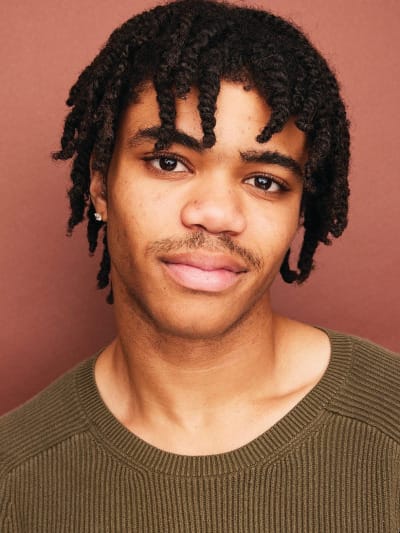
Trent Lawson
u/s Henry
Trent is an actor, recording artist, and storyteller from the Bay Area, and has never been more excited to jump into performing professionally. From playing leading roles on the UCLA stage such as Jack in Into the Woods and Joe in The Time of Your Life, to starring in short films, to songwriting, releasing music, arranging ICCA award-winning a capella pieces, and playing in bands at venues like the Viper Room and the Troubadour, Trent is an artist in the truest sense. Lastly, in today’s world, he has never been more sure about the importance of telling stories that uplift underrepresented people.
David Mendizábal they/he
Director and Costume Design
David is a director, designer, producer, and the Associate Artistic Director of Berkeley Repertory Theatre. They are one of the producing artistic leaders of the Obie award-winning The Movement Theatre Company and a founding collective member of the Obie award-winning Sol Project. Select directing credits include Mother Road (Berkeley Rep), the bandaged place (Roundabout/NYSAF), Mushroom (People’s Light), Sanctuary City (Berkeley Rep/Arena Stage), Notes on Killing… (Soho Rep/Solo Project; also Costume Designer), and Don't Eat the Mangos (Magic Theatre/Sundance). David served as the Assistant Costume Designer on the Tony Award-winning Broadway productions of Hair and Peter and the Starcatcher. They also designed costumes for Queendom, Creature, and Vanity by Bebe Zahara Benet, the original winner of RuPaul’s Drag Race. David is an alumnus of the Soho Rep Project Number One Residency, Ars Nova Vision Residency, Drama League Directors Project, Labyrinth Intensive Ensemble, artEquity, NALAC, LCT Directors Lab, and TCG Leadership U. They are the recipient of a 2021 Princess Grace Award Honoraria in Theater. David earned a BFA from the New York University Tisch School of the Arts. davidmendizabal.com
Riw Rakkulchon he/they (pronounced Ree-you)
Scenic Design
Riw is a set and costume designer, animator, and chef from Bangkok, Thailand. They have worked at Yale Repertory Theatre, Syracuse Stage, The Old Globe, Asolo Rep, The Acting Company, Edinburgh Fringe, Primary Stages, Hartford Stage, Public Theater, and Brooklyn Academy of Music, amongst others. Broadway Associate Set Design: Pass Over, &Juliet, Parade. Board member of WithAll, a non-profit organization on a fight to end eating disorders. BFA Ithaca College, MFA Yale School of Drama (Donald & Zorca Oenslager Fellowship Award in Design Recipient). riwrdesign.com
Mextly Couzin
Lighting Design
Recent credits include — Broadway: JOB. Off-Broadway: N/A, Fiasco Theatre’s Pericles, A Good Day to Me Not to You, Here We Are (ALD), Straight Line Crazy, peerless, Tambo & Bones. Regional: Mexodus (Baltimore Center Stage/ Mosaic), HENRY 6 (The Old Globe), Das Rheingold (Seattle Opera), Incendiary (Woolly Mammoth), West Side Story (Centro de Bellas Artes Puerto Rico), La Belle et la Bête (Opera Parallèle). International: Théâtre des Champs-Elysées, Nuits de Fourvière. 2023 recipient of The 1/52 Project grant. MFA University of California, San Diego ’20. mextlycouzin.com
Mikhail Fiksel
Sound Design and Orchestration
Mikhail is an award-winning designer, composer, DJ, and audio producer returning to Berkeley Repertory Theatre having recently worked on Cambodian Rock Band and English. Other recent collaborations include projects with the Lincoln Center, New York Theatre Workshop, Steppenwolf, Playwrights Horizons, Guthrie Theater, La Jolla Playhouse, The Goodman Theatre, Third Rail Projects, Albany Park Theater Project, and numerous releases with Audible Originals and with Make Believe Association (where he is Head of Audio Production). Recent awards include the 2023 Signal Award for Original Music, the 2022 Tony Award for Sound Design, and the 2024 Michael Merritt Award. He is a Practioner-In-Residence at Columbia College Chicago, and is a proud member of USA and TSDCA.
Rasean Davonté Johnson
Projection Design
Rasean is delighted to be working with Berkeley Repertory Theatre. A Chicago-based video artist and theatrical designer, he has had the opportunity to work regionally with institutions such as Theatreworks Silicon Valley, Oregon Shakespeare Festival, Seattle Rep, Portland Playhouse, Portland Opera, Public Theater, Woolly Mammoth Theatre, The Olney Theatre Center, Steppenwolf Theatre Company, Goodman Theatre, Chicago Shakespeare Theater, Yale Repertory Theatre, Toledo Opera, Houston Grand Opera, and Manual Cinema. He has degrees from the Ohio State University and the Yale School of Drama, and lectures at the University of Chicago where he is the Director of Design for TAPS.
raseandavontejohnson.com
Tony Thomas he/him
Movement Director
Tony is an award-nominated director, choreographer, and interior architect. His credits include The Colored Museum; Fat Ham; Good Bones; People, Places & Things; White Noise; Pass Over; Flow at Studio; Metamorphoses at Folger; Tempestuous Elements at Arena Stage; Mexodus and Native Son at Mosaic Theater Company; Out of the Vineyard at Joe’s Movement Emporium; and Miss Nelson is Missing, Naked Mole Rat Gets Dressed: The Rock Experience, and P.Nokio: A Hip-Hop Musical at Imagination Stage. Tony is also active in pre-professional education and private professional level artist coaching and technique, leading numerous workshops and coaching circuits between New York, D.C., and Los Angeles.
Hope Villanueva*
Stage Manager
Berkeley Repertory Theatre debut! Recently: The Fires (SoHo Rep), King of the Yees (Signature Theatre), Blues for an Alabama Sky (Barrington Stage), A Nice Indian Boy (Olney Theatre Center). Off-Broadway: Who’s Your Baghdaddy? National Tour: Rock of Ages, Ringling Bros. and Barnum & Bailey’s Bellobration. Regional/Other: Romy & Michele, Rock of Ages Hollywood, WILD: A Musical Becoming (A.R.T., feat. Idina Menzel, Javier Muñoz), Our Town (Olney Theatre Center). Honolulu Theatre for Youth, Resident Production Stage Manager. Washington, D.C.: BLKS (Woolly Mammoth), Twist Your Dickens (The Second City/Kennedy Center), Private and The Vagrant Trilogy (Mosaic Theatre), Hand to God and Choir Boy (Studio Theatre).
Christina Hogan* she/her
Assistant Stage Manager
Christina returns to Berkeley Repertory Theatre after working on Mother Road, Bulrusher, POTUS, English, and Sanctuary City. Other theatre credits include Sweatshop Overlord, The Headlands, Fefu and her Friends, Gloria, Top Girls, and Men on Boats (American Conservatory Theater); August Wilson’s Two Trains Running, Pass Over, and Georgiana and Kitty (Marin Theatre Company); Josephine’s Feast, In Old Age, and The Baltimore Waltz (Magic Theatre); The Road to Mecca and Ripped (Z Space). Hogan has a BA in theatre arts from Saint Mary’s College of California.
Julia Formanek*
Assistant Stage Manager
Julia is a Bay Area-based stage manager. Formanek is excited to return to Berkeley Repertory Theatre after last working on Let The Right One In. Regional Credits include: Private Lives, A Strange Loop, Hippest Trip: A Soul Train Musical (American Conservatory Theater); Cambodian Rock Band, Goddess, Culture Clash (Still) in America (Berkeley Rep); Sleeping Beauty: Panto in the Presidio (Presidio Theatre); Romeo y Juliet, House of Joy, Everybody (California Shakespeare Theater).
Johanna Pfaelzer
Artistic Director
Johanna joined Berkeley Rep in 2019 as its fourth artistic director, following 12 years as artistic director of New York Stage and Film (NYSAF), a New York City-based developer of new works for theatre, film, and television. Johanna is proud to have developed work by notable established and early career writers like Hamilton by Lin-Manuel Miranda; Goddess by Saheem Ali, Michael Thurber, and Jocelyn Bioh; The Humans by Stephen Karam; Hadestown by Anaïs Mitchell; The Wolves by Sarah DeLappe; The Invisible Hand by Ayad Akhtar; A 24-Decade History of Popular Music by Taylor Mac; The Homecoming Queen by Ngozi Anyanwu; The Great Leap by Lauren Yee; Doubt by John Patrick Shanley; The Fortress of Solitude by Michael Friedman and Itamar Moses; The Jacksonian by Beth Henley; and Green Day’s American Idiot. Johanna previously served as associate artistic director of American Conservatory Theater and is a graduate of Wesleyan University and the Actors Theatre of Louisville Apprentice Program. She lives in Berkeley with her husband, Russell Champa, and their son, Jasper.
Tom Parrish
Managing Director
Tom has served as a theatre leader and arts administrator for over 20 years, with experience in organizations ranging from multi-venue performing arts centers to major Tony Award-winning theatre companies. Prior to Berkeley Rep, he served as executive director of Trinity Repertory Company, Geva Theatre Center, and Merrimack Repertory Theatre and as associate managing director/ general manager of San Diego Repertory Theatre. His work has been recognized with a NAACP Theatre Award for Best Producer and “Forty Under 40” recognition in Providence, Rochester, the Merrimack Valley, and San Diego. He received his MBA/MA in Arts Administration from Southern Methodist University; BA in Theater Arts and Economics from Case Western Reserve University; attended the Commercial Theater Institute, National Theater Institute, and Harvard Business School’s Strategic Perspectives in Nonprofit Management; and is certified in Leading Diversity, Equity, and Inclusion by Northwestern University. He and his husband live in Berkeley.
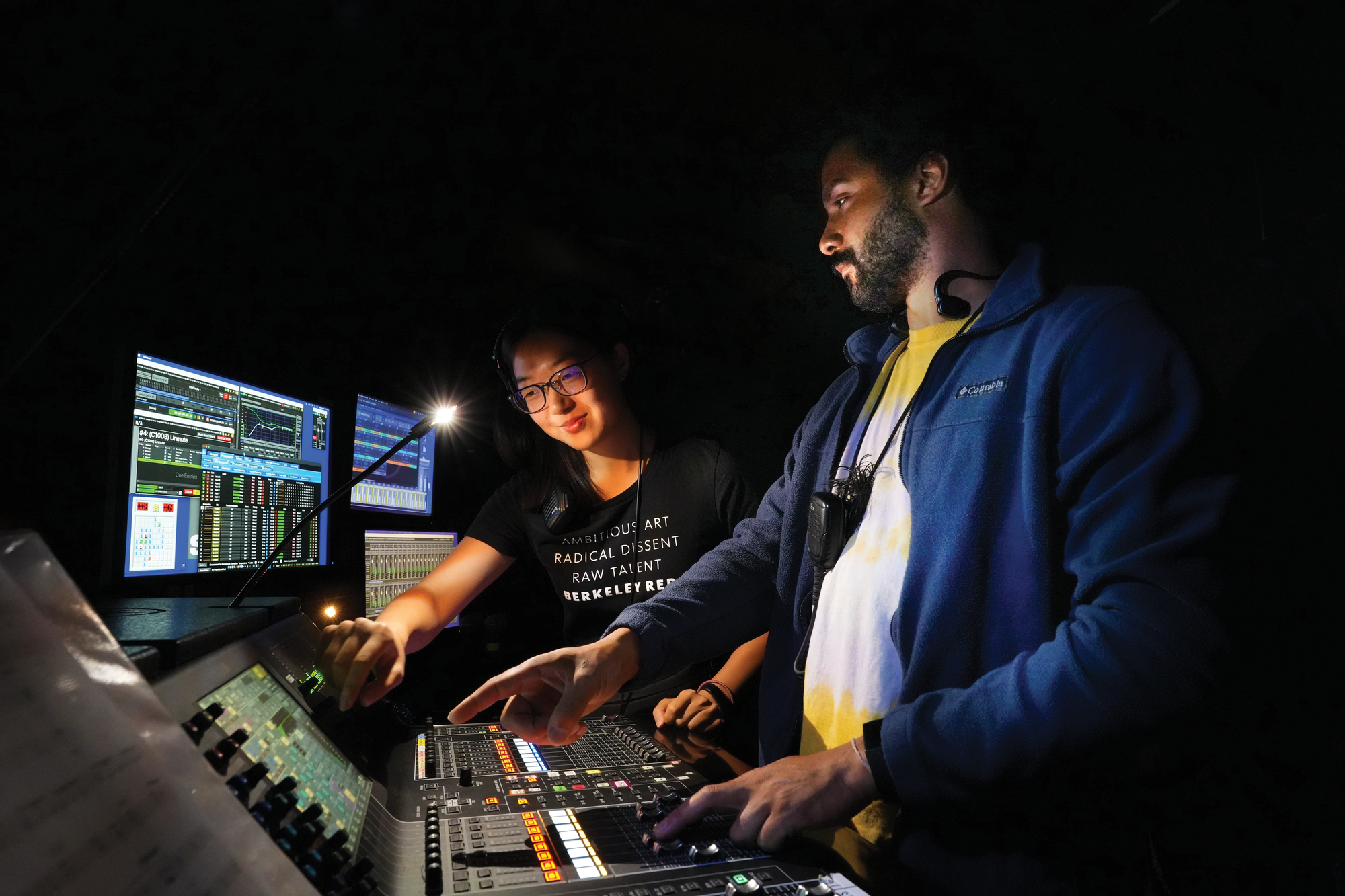
Making Theatre
Meet the Artisans Who Build Our Shows
by DC Scarpelli
Sound design is something that enormously influences how audiences experience a production, but many audience members don’t realize that it’s happening (or even what it is). Below, Berkeley Rep sound and video supervisor Lane Elms shares his thoughts on how sound design impacts a show like Mexodus.
Lane Elms: The sound designer shapes the overall aural experience of the audience — from lobby music to sound reinforcement to the acoustics of the space or the set.
Vocal and band reinforcement often ends up being the most technical part of our job, but sound designers also give input to the scenic and lighting designers, and props artisans. For example, if a door needs to slam, but its sound is cheesy, we might suggest that scenic design use a heavier door or reinforce its framing. If a moving light makes too much noise during a quiet scene, we might ask lighting to swap it out.
There are often subtle changes in sound that the audience might not notice, but that they might feel as a change of mood — like changing the reverb in the space, or using subwoofers to vibrate seats. We try to make the sound design transparent, enhancing the storytelling without distracting from it.
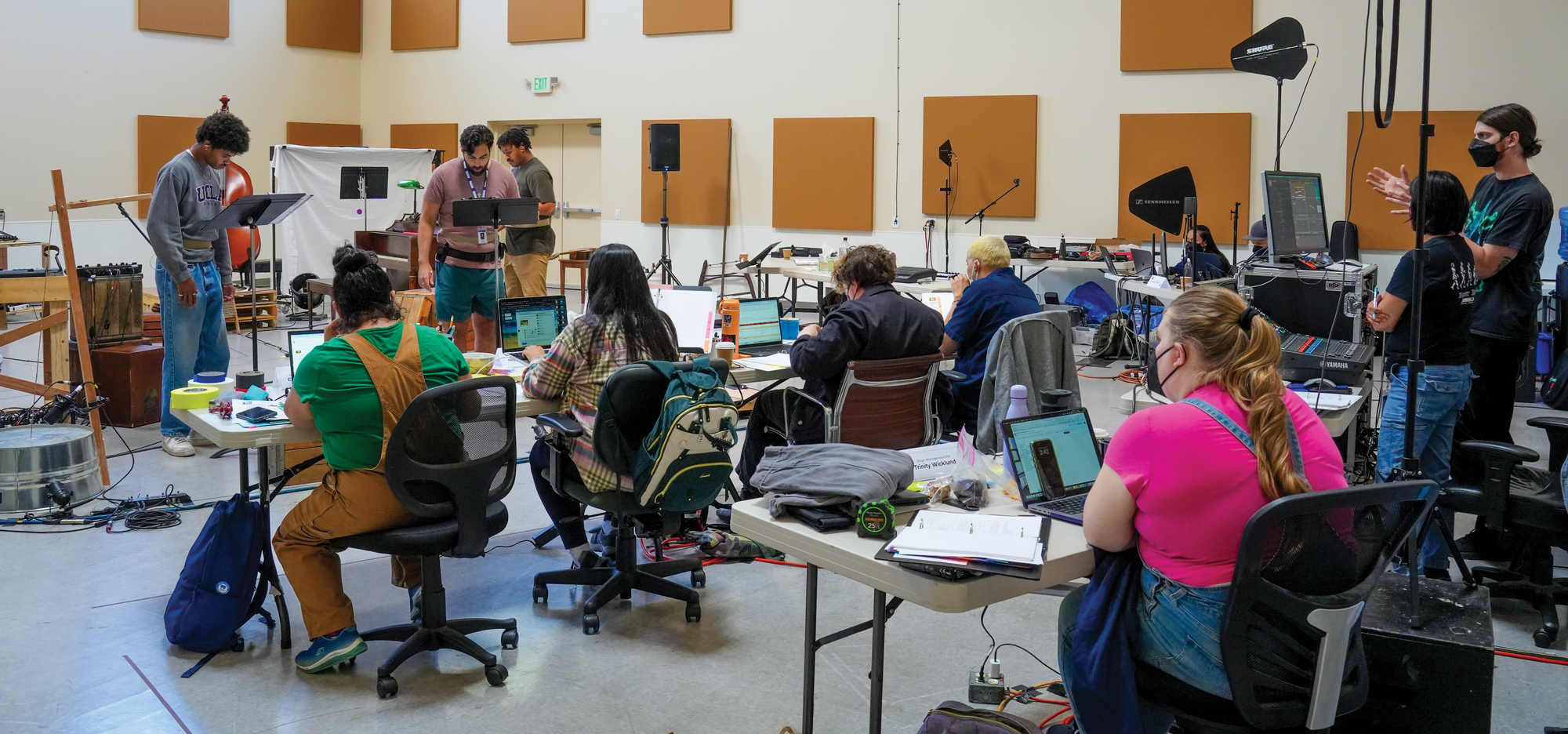
Mexodus is a very music-heavy show that requires a lot of sound support. All the live instruments on stage must be reinforced and sent through processors that loop the sound, routing them to and from many computers, processors, and the console. All the looping is triggered by the actors onstage, so we have triggers built into the set at lots of different locations to free their movement.
The sound operator, Angela Don, ensures that the programming is tracking correctly and that the performers aren't getting out of sync with the looping cycles. The lighting and video departments also get looping information from sound/music to sync the video and lights to the sound, so there is a large network of communication happening all the time.
The actors have to hear each other as well as what they're playing and looping, so we have video monitors that show them where they are in the cycles, and in-ear audio monitors so they can hear what's happening all the time. Each actor wears two wireless lavalier microphones, a wireless handheld mic, and a wireless in-ear monitor, so we work closely with the costume department to coordinate where all that technology goes. Plus, we coordinate sound-making props with the props department — it's a real all-department collaboration. Our backstage audio engineer, Courtney Jean, manages all these wireless elements and makes sure all the instruments are tuned and in working order before and during the show.
After all of that, the show still needs to sound clear and seamless, and Misha Fiksel, the sound designer, has woven the complexity of the technology into the beauty of the storytelling beautifully.
I encourage the audience to listen to the sound of the show in the same way they might observe the changes in the lighting, or the texture of the set or costumes. How do the movement, levels, or texture of the aural space help to tell the story? What does it draw attention to or away from?
Print Edition
